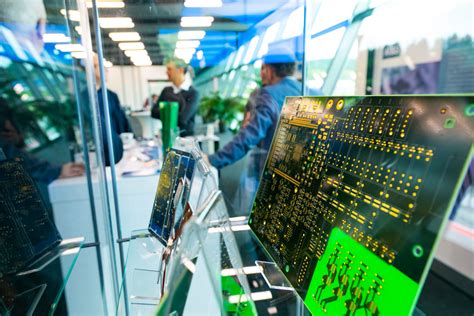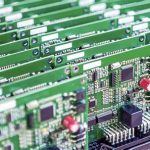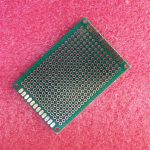Introduction to PCB Forums
PCB forums are online discussion platforms where electronics enthusiasts, professionals, and hobbyists gather to share knowledge, ask questions, and collaborate on projects related to printed circuit boards (PCBs) and electronic design. These forums serve as a valuable resource for anyone interested in learning about PCB design, manufacturing, troubleshooting, and staying up-to-date with the latest industry trends.
In this comprehensive guide, we will explore the world of PCB forums, discussing their benefits, popular platforms, and how to effectively participate in these communities to enhance your electronics knowledge and skills.
The Benefits of Participating in PCB Forums
Engaging in PCB forums offers numerous advantages for both beginners and experienced professionals in the electronics industry. Some of the key benefits include:
-
Knowledge Sharing: PCB forums provide a platform for users to share their expertise, experiences, and insights with others. By participating in discussions, you can learn from seasoned professionals and expand your understanding of PCB design and manufacturing processes.
-
Problem Solving: If you encounter a challenge or issue during your PCB design or assembly process, forums allow you to seek advice and solutions from a diverse community of experts. Often, someone else has faced a similar problem and can provide valuable guidance to help you overcome obstacles.
-
Collaboration Opportunities: PCB forums foster a collaborative environment where users can connect with like-minded individuals to work on projects, exchange ideas, and form partnerships. This can lead to exciting opportunities for innovation and professional growth.
-
Industry Updates: Forums are an excellent source of information about the latest trends, technologies, and best practices in the electronics industry. By staying active in these communities, you can stay informed about new software tools, manufacturing techniques, and emerging standards.
-
Networking: Participating in PCB forums allows you to build relationships with other professionals in the field. These connections can be valuable for career advancement, finding job opportunities, or establishing business partnerships.
Popular PCB Forums
There are numerous PCB forums available online, each with its own focus, community size, and level of activity. Some of the most popular and well-established forums include:
| Forum Name | URL | Description |
|---|---|---|
| EEVblog | https://www.eevblog.com/forum/ | A large and active community discussing various aspects of electronics, including PCB design, components, and projects. |
| PCBWay Forum | https://www.pcbway.com/community/ | A forum hosted by PCBWay, a popular PCB manufacturing service, focusing on PCB design, fabrication, and assembly. |
| DesignSpark PCB Forum | https://www.rs-online.com/designspark/pcb-design-forum | A forum dedicated to discussing DesignSpark PCB, a free PCB design software, as well as general PCB design topics. |
| Autodesk EAGLE Forum | https://forums.autodesk.com/t5/eagle/ct-p/8020 | A forum focused on Autodesk EAGLE, a widely used PCB design software, covering design techniques, tips, and troubleshooting. |
| KiCad Forums | https://forum.kicad.info/ | A forum dedicated to KiCad, an open-source PCB design software, where users discuss design workflows, libraries, and plugins. |
These are just a few examples of the many PCB forums available. It’s worth exploring different platforms to find the communities that align with your specific interests and needs.

Effective Participation in PCB Forums
To make the most out of your PCB forum experience and contribute positively to the community, consider the following tips:
1. Read the Forum Rules and Guidelines
Before actively participating in a forum, take the time to read through the community’s rules and guidelines. These often cover topics such as acceptable behavior, post formatting, and resource sharing policies. Familiarizing yourself with the rules will help you avoid unintentional violations and ensure a smooth experience.
2. Use Descriptive and Clear Titles for Your Posts
When creating a new post or thread, use a descriptive and clear title that accurately reflects the content of your message. This helps other users quickly identify the topic and determine if they can provide assistance or input. Avoid using vague or misleading titles that may confuse or frustrate other members.
3. Provide Detailed Information and Context
When asking for help or advice, provide as much relevant information and context as possible. This includes details about your PCB design, software tools, components, and any specific challenges you are facing. The more information you share, the easier it will be for others to understand your situation and offer targeted guidance.
4. Use Proper Formatting and Maintain Readability
Organize your posts using proper formatting techniques to enhance readability. Use paragraphs, bullet points, and code blocks where appropriate to break up long text and highlight important information. Avoid using excessive capitalization, emoticons, or non-standard characters that may disrupt the flow of your message.
5. Be Respectful and Professional
PCB forums are professional communities where members expect respectful and courteous interactions. Treat others with kindness and patience, even if you disagree with their opinions or approaches. Avoid engaging in personal attacks, inflammatory language, or off-topic discussions that may derail the conversation.
6. Contribute Meaningful and Constructive Content
In addition to seeking help, strive to contribute meaningful and constructive content to the forum. Share your own experiences, insights, and solutions to help others facing similar challenges. Engage in thoughtful discussions, provide feedback, and offer resources that may benefit the community as a whole.
7. Give Back to the Community
As you gain knowledge and experience through your participation in PCB forums, consider giving back to the community by helping others in need. Respond to questions, offer guidance, and share your expertise when appropriate. Fostering a supportive and collaborative environment benefits everyone involved and strengthens the overall community.
Frequently Asked Questions (FAQ)
-
Q: Are PCB forums suitable for beginners with little to no electronics experience?
A: Yes, many PCB forums welcome beginners and provide resources and support to help them learn and grow. Look for forums with dedicated beginner sections or tags, and don’t hesitate to ask questions or seek guidance from more experienced members. -
Q: Can I share my PCB designs or schematics on forums for feedback?
A: Most PCB forums allow users to share their designs and schematics for feedback and critique. However, be sure to review the forum’s rules regarding intellectual property and confidentiality. Some forums may have specific guidelines or restrictions on sharing proprietary or sensitive information. -
Q: How can I find solutions to specific PCB design software issues?
A: Many PCB forums have dedicated sections or tags for specific design software, such as Altium, EAGLE, or KiCad. Search for threads related to your software and browse through the discussions to find potential solutions. If you can’t find an existing solution, create a new post detailing your issue and seeking assistance from the community. -
Q: Are there any forums focused on PCB Assembly and manufacturing?
A: Yes, several forums cater specifically to PCB assembly and manufacturing topics. These forums often include discussions on SMT (surface-mount technology), through-hole assembly, soldering techniques, and best practices for PCB Fabrication. Some popular manufacturing forums include the PCBWay Forum and the EEVblog Manufacturing and Assembly subforum. -
Q: How can I stay updated on the latest PCB industry news and trends through forums?
A: Many PCB forums have dedicated sections for industry news, updates, and trends. These sections often feature discussions on new technologies, standards, and best practices in the electronics industry. Subscribing to these sections or following relevant tags can help you stay informed about the latest developments in the PCB world.
Conclusion
PCB forums are invaluable resources for anyone involved in the electronics industry, offering a wealth of knowledge, collaboration opportunities, and support from a global community of experts and enthusiasts. By actively participating in these forums, you can enhance your PCB design skills, stay updated on industry trends, and connect with like-minded professionals.
Remember to engage respectfully, contribute meaningfully, and adhere to the forum’s guidelines to ensure a positive and productive experience. With dedication and active participation, PCB forums can become a powerful tool for personal and professional growth in the exciting world of electronics.






Leave a Reply